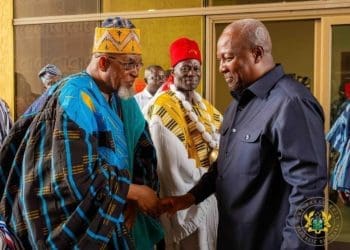The government is exploring the possibility of using domestic pension funds to finance critical roads and bridge infrastructure once Ghana exits its current programme with the International Monetary Fund (IMF).
The move is aimed at easing pressure on public finances while accelerating infrastructure development across the country.
Minister for Roads and Highways, Kwame Governs Agbodza, confirmed ongoing discussions with the Ministry of Finance on the proposal.
However, he noted that a final decision will be made in the coming months, as the current IMF deal restricts the government from entering new borrowing agreements or making fresh financial commitments.
When asked by Bernard Avle on The Citi Breakfast Show on Thursday, July 31, 2025, whether the Roads Ministry plans to leverage pension funds for self-financing road projects, Mr. Agbodza responded:
“The government, through the Finance Ministry, is exploring this. Yes, I know that the pension fund has got very healthy amounts in there. In fact, some of the banks are even coming forward to do things, but you see some of those things can be done after the IMF [deal] because currently we are not allowed to actually enter into anything that looks close to additional borrowing or commitment.”
The Minister added that he regularly receives investment proposals from both individuals and institutions offering to fund road projects—some running into billions of dollars—but the IMF restrictions make it impossible to proceed.
“In fact, people come to me every day. I have a friend in Dubai who says I have two billion, another in Turkey who says I have three billion. I simply say that we are under an IMF programme. You would require government commitment, and the government cannot give you one cedi of commitment as long as we remain under this programme,” he stated.
Meanwhile, the government is set to sign 31 major road and bridge construction contracts by the end of August 2025. The initiative forms part of a broader infrastructure rollout aimed at improving economic connectivity nationwide.
All commencement certificates for the projects have been secured, and procurement processes are currently underway to select contractors for immediate mobilisation.
The contracts will include strict timelines and enforceable penalties to ensure timely completion. The projects are expected to be delivered within 24 months.













